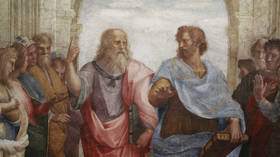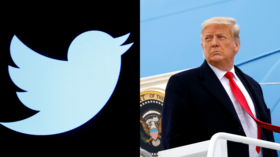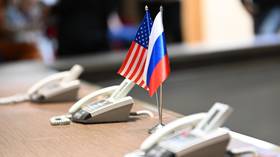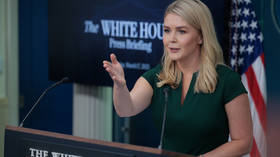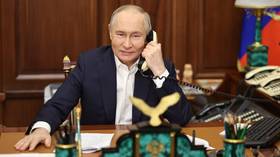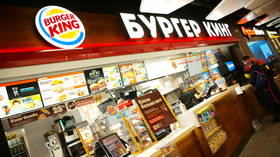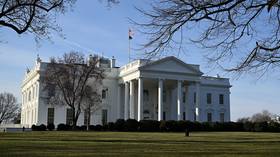The government has become the biggest advertiser in Britain's already struggling newspapers, so how 'independent' are they really?
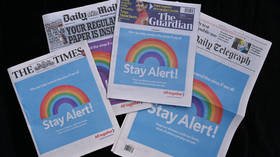
The Covid-19 outbreak saw the state spend millions on messaging, but that financial lifeline has now become a subsidy and is helping to keep some newspapers afloat.
It will surprise most Brits that the nation's biggest advertiser is not Amazon, Apple, or Nike – it’s the government. That’s across all forms of advertising, but when the focus narrows to newspapers, the picture is even more troubling. Experts have stated that the continued existence of this government money is important for newspapers to survive, but that surely creates a conflict of interest. Via Public Health England, between the start of lockdown and July 2020, the government spent £44 million in three months. In context, that was a 5,000 percent year-on-year increase.
With sales of newspapers falling and the difficulty in creating a customer base to charge for content online growing, newspapers are dealing with tough times. A case in point is the Sun, comfortably the UK’s biggest selling paper for decades, but as sales dropped sharply they stopped releasing their figures and their latest financials recorded a £68 million loss. It's estimated that the Daily Mail took the top spot back in June 2020. But just a few months later, even they were reporting a 25 percent decline in revenue. Why? Mainly because advertisers had taken a machete to their budgets.
Also on rt.com ‘Denier’ is the dirty word of the pandemic and is being wrongly used to shut down the valid concerns of lockdown scepticsPrior to Covid-19, Jeff Bezos and Amazon were the biggest spenders in Britain’s newspapers, followed by TV network Sky. But once the pandemic took hold, they cut spending by 77 percent and 60 percent respectively. That’s positive compared to McDonald’s, who chopped off 97 percent of their spend. Some did increase – namely eBay, Disney+ and Microsoft – but nothing close to the government’s upsurge.
Boris Johnson and his cabinet felt they had to get their message out there. We had ‘Stay Home, Protect the NHS, Save Lives’, then it was ‘Eat Out to Help Out’. The narrative moved on as the government paid MullenLowe Group to create the 'Look Into My Eyes' campaign. The unintended result was that the government has become a lifeline to the newspaper industry, which receives a steady stream of cash.
On the day of writing (February 10), across six national titles – Daily Express, Daily Mail, Daily Mirror, Daily Star, the Daily Telegraph and the Guardian – there were a staggering 15 pages of government advertising, not counting any supplements. Compare that to the next biggest advertiser on that day in the same titles.
It was the nation’s biggest supermarket chain, Tesco, who reported a 29 percent rise in profits, with four pages. The next biggest was supermarket Asda, bought recently for £6.8 billion, with one and half pages. Budget supermarket chain Aldi and telecommunications firm TalkTalk followed with a single page.
Also on rt.com Vaccine passports will likely be needed to travel abroad, but still no plans for ‘domestic’ ID, UK transport secretary saysIt’s telling that the largest spenders, aside from the government, are supermarkets who have seen a boom due to lockdown and the shuttering of restaurants. But even with that surge in demand, they are still advertising way below Westminster’s levels. In a functioning democracy, this seems to be an extremely unhealthy position, and it’s set to continue.
The UK’s biggest ad buying agency Group M has stated that government marketing campaigns are “key” for newspaper revenues in 2021. This prediction has come true, evidenced by today’s 15 pages of state advertising. The situation generates major problems – most importantly, that the independence of Britain’s media has to be questioned. Editors and executives are aware of what amount of their revenue is coming from the government, so it will impact their editorial policy. It’s a fantasy to think that journalistic morality trumps all else. That may be the case for reporters, but to get their work in print, it has to go through the corporate structure.
A small example from my own career. I interviewed several years back the Canadian astronaut Chris Hadfield, who had recently returned from the International Space Station. At the time, there was speculation over where a rocket launchpad could be built in Britain. One option he said was a waste of time for several reasons. This ran counter to the government’s messaging, which was whipping up the potential of this site and gaining good PR. I offered it to an editor at a national tabloid who declined to use it, not because it wasn’t interesting but because they were set to run some features – arranged by the authorities – saying the opposite. So erroneous, and admittedly harmless, information was used because it made financial sense.
Also on rt.com What to do post-Covid? Deprived of routine, Americans haven’t a clue... and the Great Resetters couldn’t be happierIf we expand that microcosm to Covid-19, any questionable information is most certainly not harmless, both from the point of view of human mortality and economically. The kicker is we already know it's happened. The newspaper industry has been asleep at the wheel during the pandemic. No hard questions or investigative reporting was done. Piers Morgan was anointed as the voice of the nation, as the only media personality posing tough questions. His demand for answers was so dogged that he was investigated by regulator Ofcom over his “combative” style – and was cleared as having done no wrong.
Government ministers boycotted his ‘Good Morning Britain’ show to avoid his wrath.
But there was a real cost to the newspaper industry's soft soaping: the UK has the highest number of deaths in Europe, with over 113,500. There were embarrassing gaffes, due to an initial lack of scrutiny. 50 million face masks were ordered that couldn't be used, part of a £156 million contract. That was topped by a Royal Air Force plane flying to Turkey to collect gowns. After a ridiculous standoff, the plane finally flew home, but all of the 400,000 didn’t meet standards and were useless.
The British public have been let down by their news-gatherers. There are routine calls for reporters to hold Boris and his ministers to account, along with the leaders of the devolved parliaments – Nicola Sturgeon (Scotland), Mark Drakeford (Wales), and Arlene Foster (Northern Ireland). But the bad news is that when the hard questions needed to be asked, the government’s advertising honeypot kicked in. Now the newspapers are hooked and need the money, so are they really digging as deep as they can?
Also on rt.com ‘I’m still standin’: Elton John & Michael Caine encourage remaining at-risk Britons to get Covid-19 vaccine (VIDEO)It’s impossible to know, but investigating your benefactors raises questions of independence. Are there scandals we have been unaware of because some intrepid newshound’s information was locked away in a desk by an editor under pressure to keep their job and salary? The problem could get even bigger, as now the reliance on government ad money is there, it can’t just be pulled away. Fifteen pages of advertising in a single day is a serious amount, and who will replace it? The private corporations aren’t going to start spending again unless they have to. It is entirely possible they have grown accustomed to the ‘new normal’ and feel there’s no need to go back to the old days of shelling out millions to newspapers. A good indicator of this is online grocery retailer Ocado saying the landscape has “changed for good.”
There are still many talented and honest journalists in Britain, but they don’t exist in a vacuum. The question is, if the government keeps signing their cheques, can we trust what the newspapers are telling us?
Think your friends would be interested? Share this story!
The statements, views and opinions expressed in this column are solely those of the author and do not necessarily represent those of RT.




